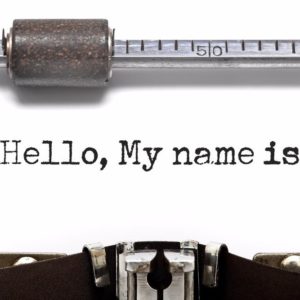

The Secret To Winning People Over? Ask Ben
Have you heard of Benjamin Franklin?
You might, if you know your American history. He was one of the Founding Fathers of the USA, signing the Declaration of Independence in 1776, and today his portrait appears on the $100 bill.
But have you heard of the Benjamin Franklin Effect? (BFE) The psychological mind-twist that can help you to win people over to your personal brand – especially the ones who dislike you.
No? Then prepare to be educated.
Here’s the history bit…
Back in the 18th Century, Franklin was a politician in the Pennsylvania Assembly, looking to get re-elected for a second term. However, a rival colleague had other ideas and set about hampering his efforts and generally bad-mouthing him to others. But instead of thinking of ways to bring his detractor down, Franklin chose a different path. As he put in his autobiography:
Having heard that he had in his library a certain very scarce and curious book, I wrote a note to him, expressing my desire of perusing that book, and requesting he would do me the favour of lending it to me for a few days. He sent it immediately, and I return’d it in about a week with another note, expressing strongly my sense of the favour. When we next met in the House, he spoke to me (which he had never done before), and with great civility; and he ever after manifested a readiness to serve me on all occasions, so that we became great friends, and our friendship continued to his death.
Here’s the science bit…
Though it seems illogical that asking a favour of someone who hates you can lead to them liking you (surely they’d just be more peeved you were bothering them), it’s precisely that illogic that lies at the heart of the BFE.
That mismatch between our perceptions (we dislike the person) and our actions (a favour is something we do for a friend) is known as cognitive dissonance. And when our brain is faced with that dissonance it does what it can to smooth things over – in this case thinking, “Well, if I change my perception from disliking this person to liking this person, then the action of doing them a favour fits right in.”
Your brain has changed your mind in order to save your sanity.
How to use the BFE yourself
It’s not just borrowing books that can trigger the BFE (thank goodness – that could be a little limiting ). Even the smallest of favours asked can generate the same feeling:
- Asking someone who dislikes you what time it is
- Asking someone who dislikes you to lend you their stapler
- Asking someone who dislikes you to hold your drink while you rummage in your bag for something
Anything that conveys the message “I’m vulnerable here, you have the upper hand” is a subtle way to show admiration or respect. And when we feel admired and respected by others, we tend to view them with a higher level of admiration and respect too. As the saying goes: flattery can get you anywhere. (But please note, there’s a line between that and schmoozing, which I’ve talked about before.)
Of course, if you want to get the most bang for your buck, asking for a bigger favour could result in a bigger bout of cognitive dissonance on the part of the other person and therefore a bigger turnaround in their perceptions:
- Asking someone who dislikes you to sense check a piece of work you’ve written
- Asking someone who dislikes you to stay an extra half hour to help you meet a deadline
- Asking someone who dislikes you to give you feedback on a presentation you’ve delivered
So the next time you need to win someone over and get buy-in to your personal brand, remember the wisdom of Benjamin Franklin and ask for a favour.
Have you come across the BFE before? And if so, have you ever used it yourself? Or do you have another tactic to share that can win people over? There’s a comment box below if you’re happy to do so.








Leave a Reply